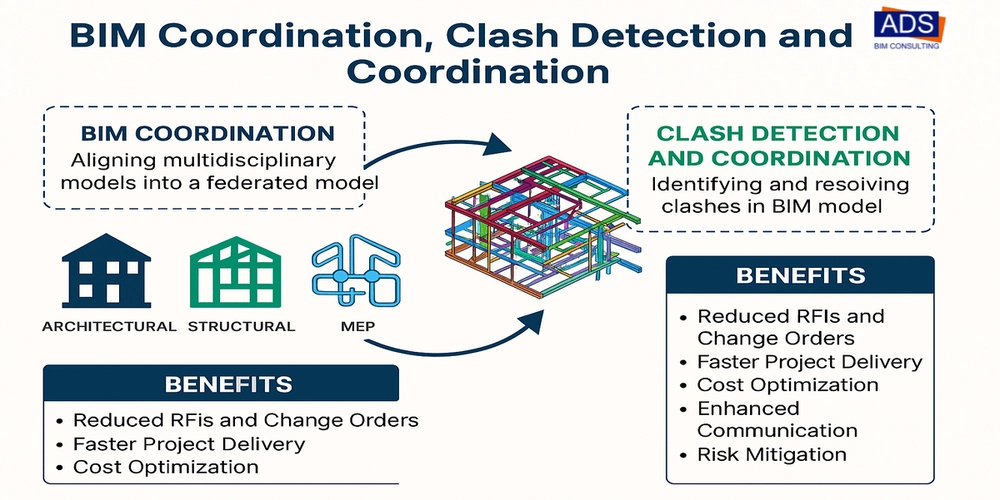3 Negotiation Tips to Give You the Critical Advantage
Negotiating is getting more of what you want while still creating a win-win solution for both sides. Here are three tips to do it better. The post 3 Negotiation Tips to Give You the Critical Advantage appeared first on The White Coat Investor - Investing & Personal Finance for Doctors.

 By Dr. Jim Dahle, WCI Founder
By Dr. Jim Dahle, WCI FounderNegotiation is a critical skill for any businessperson, but it's not taught in medical school—except perhaps as a method to convince a patient to take a prescribed treatment. Business negotiations are common and routine, but a typical physician may only engage in important financial negotiations once or twice a decade—eroding the development of this useful skill. A basic framework of negotiation is a useful bit of financial literacy and worth some of our time and effort here at The White Coat Investor.
The classic physician negotiation is negotiating an employment contract. Doctors have all kinds of weird ideas about how negotiation is supposed to work, as evidenced by the questions floated in forums, social media, and my email inbox. They're so excited about getting a job offer and ask, “Should I take it or negotiate?” What they don't realize is they are already negotiating, and they were doing it for a long time before they realized it. Their negotiation started the first time they read the “help wanted” ad. That ad was the first offer extended from the other side!
Win-Win Contract Negotiations
There are three critical aspects to a negotiation, and the person who has the most of them generally “wins” the negotiation. Truthfully, the vast majority of negotiations are “win-win” negotiations. Some are “lose-lose” negotiations, but very few are “win-lose” negotiations. They do occur, of course, but that's mostly due to a lack of negotiating skills. Here's what I mean.
Physician-Employer
Let's imagine there is a small town without an orthopedic surgeon. The people mostly have health insurance, and the doctors in town do pretty well. The hospital is successful, and it has plenty of money. But it has a big gaping hole in its medical staff and call list—orthopedics. Doctors have been transferring hip fractures and knee replacements to a town two hours away.
Now, let's imagine an orthopedic surgeon is coming out of residency. They have some great skills, and they are willing to work hard. But they owe $400,000 in student loans, and their partner is sick of scraping by. The financial stress in their relationship is building by the month. They have a serious need for money. Somehow, the new doctor ends up on the phone with the CEO of the hospital in a negotiation. Is it really that hard to believe that these two can come up with a solution that produces a win for the community, a win for the hospital and the rest of the medical staff, and a win for the doctor and their partner? Of course not.
The doctor gets the money, and the hospital and the community get orthopedic services. Win-win.
Every Day Negotiations
This happens all the time. Let's say you need a snowblower, and the owner of a snowblower store needs enough revenue to pay his employees and feed his kids. As long as that snowblower is worth more to you than the cost of the owner to get that snowblower into your hands, it's a win-win. If the snowblower isn't worth more than that to you, no sale is made—a lose-lose. If you pay $1,250 instead of $1,200, yes, the store owner came out a little better, but you both still won. That isn't a lose-win negotiation. A lose-win negotiation is when a negotiator has a knowledge deficit so large that they accept a solution that doesn't even solve their problem.
In your negotiations, your goal is to produce a win-win that is as much to your advantage as possible. Most of the time, the only way there's going to be a true loss is if there is no deal at all. So, let's talk less about “winning” a negotiation and more about finding a win-win solution, particularly one that is to your advantage as much as possible while still producing a win for your negotiating opponent partner.
More information here:
‘What Are Your Salary Expectations?’ Here’s Why You Should Stop Evading This Question
12 Negotiation Techniques You Need to Know
3 Negotiation Tips to Give You the Critical Advantage
What are the three advantages you can have in a negotiation? They are knowledge, patience, and options (or flexibility.) As a general rule, the person with the most knowledge, the most patience, and the most options will come out ahead in any negotiation.

Negotiation Tip #1 – Gain Knowledge
The first key is to gain knowledge. The person with the most knowledge wins. For example, if you don't know the going rate for a hospitalist in your area is $225,000 per year but your employer does, you're much more likely to accept a lower amount. Let's say the employer offers you $175,000. You're a savvy doctor, so you “negotiate” and demand a $5,000 CME fund and $20,000 worth of paid vacation. The total cost to the employer is $200,000. Is it a win-win? Sure. You get the job and everything you demanded. The employer gets a hospitalist who costs less than all of the other hospitalists who work there. You're both happy. But you probably could have had more if you had a little more knowledge.
Knowledge can be general—for example, how much you are worth and how contracts in your business are generally structured. It also can be local or specific knowledge—for example, is your employer desperate to get you hired, and what is the budget for your position?
General knowledge can often be obtained by consulting a database (such as MGMA), a knowledgeable healthcare attorney, or a contract review service. Talking to as many other professionals in your field as you can is also usually beneficial. Last year's graduating class of residents can be a particularly useful resource. Specific information is generally obtained more locally, sometimes from your negotiating partner just by asking. But it is also worth talking to other doctors or staff in the hospital, on the medical staff, or in the local area.
Most doctors find themselves on the losing side of the knowledge battle. Evening up the odds by learning as much as you can will help. When you know you are at a dramatic disadvantage, it is also useful to keep the contract as short as possible. This allows you to negotiate again in 3-12 months when you have a lot more knowledge at your disposal.
Negotiation Tip #2 – Have Patience
The person with the most patience usually wins the negotiation. Ever tried to buy a car after yours has already been wrecked? At that point, you need something to get you to work tomorrow. Perhaps you were even dropped off at the dealership by a friend, and you have to buy a car just to get home. You are far more desperate to make a deal than the person on the other side of the table. The salesperson doesn't care if they sell you a car today, tomorrow, or next week. They don't get their bonus for two more weeks anyway.
It's the same in any negotiation. You want that person to need what you're offering a lot more than you need what they are offering. Unlike the knowledge category, doctors are OFTEN in the driver's seat here. After all, lots of graduating residents would love to take a month or two off. The better your financial position, the better time off looks when compared to working at all.
Now, you don't want to drag out a negotiation forever. In any negotiation, the longer it lasts, the more advantageous it becomes to one party or the other. You want that party to be you. At the extreme end, consider a physician who is already financially independent. That doctor can endure a negotiation that literally lasts years.
Negotiation Tip #3 – Be Flexible
The more flexible you can be, the better your negotiating position. I can't believe how many doctors stop looking for jobs when they find one that expresses a little interest. In most specialties and areas of the country, the doctor's skills are a rare commodity. There might be five potential employers who want to hire you in your local area if you just look around.
If you have two options, you can play them off one another until you find the best deal. But if all you've looked at are two options, you're probably choosing between bad and worse. However, if those two were narrowed down from 10, you may be looking at your dream “unicorn” job by the time all is said and done.
More information here:
28 Things You Can Negotiate Besides Salary
Things to Ask for in a Physician Contract
BATNA Negotiating
A commonly used term in negotiating is BATNA—Best Alternative to a Negotiated Agreement. You want your BATNA to be better than your negotiating partner's. This is what happens if this negotiation breaks down and becomes a “lose-lose.” Perhaps the hospital's BATNA is a doctor who's demanding $50,000 more than you are. Perhaps your BATNA is a job that pays slightly less than you are asking. Do all you can to find as many other options as possible so you are likely to have the best BATNA. That will make your negotiating partner far more likely to cave in to your demands requests en route to a win-win solution.
For example, consider a benefits package. Let's say you have a spouse working at the local university with a great health insurance benefit for your family. You are looking at a private practice employee job. You now have the option to negotiate away health insurance at this job, potentially exchanging it for a higher salary, which is far more valuable to you in this situation. Since money is fungible for your potential employer, it's entirely possible that they would be willing to give you a large chunk of what it would cost them to provide you health insurance as a salary or a CME fund instead. Win-win.
If you need more information on salary data and contract review (all in one place), check out what Resolve can offer.
Bringing It All Together to Win at Negotiations
The truth is that all of these categories are synergistic. The more you know, the more options you can create. The more options you have, the more patient you can be. The more patient you are, the more knowledge you acquire.
Why does this all matter? In the grand scheme of things, you will feel happier knowing you are getting a good deal and you will feel more appreciated in your position. You will have more respect for yourself and from your employer. Perhaps most importantly, you will have pushed harder on one of the levers that solves your financial problems.
Becoming wealthy is not a complicated process. Make more, spend less, and invest the difference wisely. The better you negotiate, the more you make, and, if you can manage to hold spending at its current level, the more you have left over to invest. Negotiating wisely leads you to earlier financial independence.
Looking to increase your income or renegotiate an existing contract? Hop on over to the WCI physician contract review page, where you can find vetted lawyers and compare your contract to other docs.
What do you think? Do you agree with these three tips for negotiating? What have you done to be able to negotiate more successfully?
[EDITOR'S NOTE: This updated post was originally published in 2019.]
The post 3 Negotiation Tips to Give You the Critical Advantage appeared first on The White Coat Investor - Investing & Personal Finance for Doctors.




































































